Discover Farmerama
Farmerama

Farmerama
Author: Farmerama
Subscribed: 633Played: 18,312Subscribe
Share
© All rights reserved
Description
Farmerama Radio is an award-winning podcast sharing the voices behind regenerative farming.
We are committed to positive ecological futures for the earth and its people, and we believe that farmers of the world will determine this.
Each month, we share the experiences of grass roots farmers instigating radical change for the future of our food, our health, and the planet. Tune in to hear how these producers are discovering a more ecological farming future and to learn how their decisions can have a positive impact on us all. This is regenerative farming in action.
We are committed to positive ecological futures for the earth and its people, and we believe that farmers of the world will determine this.
Each month, we share the experiences of grass roots farmers instigating radical change for the future of our food, our health, and the planet. Tune in to hear how these producers are discovering a more ecological farming future and to learn how their decisions can have a positive impact on us all. This is regenerative farming in action.
189 Episodes
Reverse
Bread. How did something so basic, so fundamental, get so complicated – and even start making us ill?
>>
This series was first released in Nov/Dec 2019. We are re-releasing it now 6 years later as we are digging back in to document the collective impact of the series and to celebrate the work of those continuing to build the new grains movement. As part of this project we are collecting voice notes from anyone who listened, inviting you to share a bit of how Cereal impacted you and whether the series sparked any change or action, big or small - maybe it made you think differently about something, or maybe you completely changed career - we want to hear both and all stories! The voice notes will form part of a new Farmerama episode and digital soundmap. We are collecting these stories now, so if you would like to send your story our way, then you can send us an audio message on:
WhatsApp +447466301300, or via our instagram messages.
Please let us know who you are, where you are based and then whatever part of your story you would like to share.
We are excited to hear from you and hope you enjoy listening again, or for the first time, it is a treat!
>>
How have the needs of industrial production come to dictate the way that seeds are bred, grain is grown, flour is milled, and bread is baked and eaten? And why are more and more people cutting this age-old staple out of their diets? In this episode, we hear from bakers and researchers who reveal the hidden truths about what goes into our bread, and explain how that’s impacting our health. And we’re introduced to the Real Bread Campaign, a movement promoting bread that’s nourishing, tasty and environmentally sound.
The radical changes that our bread has undergone are revealing of much wider truths about our relationships with food, farmers, the land, the environment, and each other. If you eat food, you have a stake in this story.
This if the first episode in a 6 part series, Cereal, uncovering the hidden truths behind our bread and the people who are building a new grains movement.
Cereal is made possible by the generous support of the Roddick Foundation.
This episode features:
Chris MacCormack, a home baker (Govanhill Bread Man)
Kimberley Bell, founder of Small Food Bakery, Nottingham
Chelsea Marshall, Trustee of Scotland the Bread
Andrew Whitley, Bread Matters, co-founder of the Real Bread Campaign, and Scotland the Bread
Theo Laffargue, Riverside Bakery, Stirling
This month we hear from a farmer in the Chinampa region outside Mexico City, we then get the lowdown on the recent Nyéléni forum in Sri Lanka, and finally we talk to The Missing Miller who helps run the newly-founded Nottingham Mill co-op.
Plus, we want to hear from you as we gather stories from anyone who listened to the Cereal series - please send Farmerama a voice note on +447466301300 telling us who you are, where you are based, and whether the series sparked any change or action, big or small.
In this final episode of our Autumn series, we start by speaking to Cassandra Gardano about life farming in the Chinampas in Mexico. The Chinampas – sometimes known as floating farms – are one of the most productive and biodiverse agroecological systems in the world, dating back over 1,500 years. Cassandra tells us about local efforts to preserve traditional farming knowledge through the Etiqueta Chinampera certification, and the vital work Chinampa farmers are doing is to preserve and reintroduce the indigenous species of the area like the axolotl.
Next, we speak to Paula Gioia of La Via Campesina, who gives us the low-down on the Nyéléni Forum held earlier this year in Sri Lanka – a global gathering of food sovereignty movements. Paula explains how the forum builds on decades of organising to strengthen solidarity among peasants, fisherfolk, indigenous and pastoralist communities, and how this year’s Kandy Declaration sets out an ambitious shared political agenda for systemic transformation “now and forever.”
Finally, we catch up with Emma Shires, who runs The Missing Miller and co-founded the Nottingham Mill Co-op. Emma tells us about how the Nottingham Mill Co-op grew from a shared corner of a bakery into a thriving community grain hub. She also reflects on her business name, The Missing Miller (inspired by our Cereal series) and why rebuilding local milling infrastructure is so important in the UK.
We have been totally blown away at how many people have gotten in touch over the last 6 years to share a bit of your story after listening to Cereal, and now we want to hear from you again and see where things are now. Please send Farmerama a voice note on +447466301300 telling us who you are, where you are based, and whether the series sparked any change or action, big or small. The team will also be at ORFC in January. If you're planning on attending and have a Cereal related memory or story to share, let us know and we’ll track you down with a microphone. You can email us on farmeramaradio@gmail.com or DM us on Instagram.
This month we hear from an industrial designer who has created a ‘farm tool ecosystem’, next up is a farmer with a fresh approach to farming on peatland and finally we tune into a Pitch Up competition winner who has started their egg business at a multi-enterprise farm in Hampshire. Plus, a reminder for any Cereal fans out there about how to get involved with a new project six years on from the original series.
----
We start with CropKit – a modular open-source customisable farm tool ecosystem tailored for small farms and recently shortlisted for the Dyson Award. Its inventor, David Soche, tells us how it works and why he’s committed to keeping farmers in control by ensuring they can repair and adapt the tool themselves. This was all part of his Industrial Design Masters, you can read much more about the tool ecosystem and his research here.
Next, we speak to Cameron Edwards at Goose Meadow Farm in Lancashire about his decision to start growing bulrushes, in collaboration with the Lancashire Wildlife Trust. The farm sits on lowland peatland that had previously been drained and is now being re-wetted. Cameron is working with PONDA, a clothing company who use bulrushes to make insulation in their coats and jackets. When they’ve processed the bullrush fibres, they give the leftover seeds back to farmers to plant more of the crop.
We end with an insight into one of the Pitch Up! Program winners, Rodrigo Navarro. He and his wife Kirsten have been running their chicken business, Wandering Feathers, for just six months.
The Pitch Up! scheme at Kingsclere Estates paved the way for him to break into the unfamiliar world of rural life. Pitch Up! is a farmer-led movement connecting businesses with forward-thinking farms to spark new ideas and enterprises. A number of farms across the UK are involved so you can head to the website and see where you might want to pitch your land based business idea with the application season running the month of November.
Did you listen to our series Cereal? We want to hear from you!
We’re collecting voices and stories from the movement, to feature in a show about Cereal 6 years on.
Send us a voicenote on our Farmerama Radio whatsapp ( +447466301300 ), letting us know who you are, how you came across the series, and whether it sparked any change or action, big or small. If you don’t want your voice shared on the episode, that’s fine, we’d still love to hear your thoughts, just let us know you don’t want it shared.
We want to understand the collective impact of the series and celebrate the work of those continuing to build the new grains movement. We are also interested to understand the impact that storytelling can have within the regenerative farming world.
The Whatsapp account will be live from the 1 Nov, you can reach us on +447466301300 - the Farmerama Radio Whatsapp and then send us an audio note up to 5 minutes long.
This month, we start with the Regen Food Systems Prize and a chance to win £20k to support your business. Next, we hear about an artist-founded wool business in the Lake District and speak with landowners backing the Right to Roam across England. We end with a look at the growing British sustainable flower movement, plus a special call-out about a new project exploring the impact of our Cereal series, six years on.
Regen Food Systems Prize Details
https://www.regen-gathering.com/food-system-prize
https://lakedistricttweed.com/pages/about
https://thewoollibrary.uk/pages/about-us
https://woodlandvalley.co.uk/beavers/
https://www.righttoroam.org.uk/
https://www.schoolofsustainablefloristry.co.uk
https://www.flowersfromthefarm.co.uk
https://farmerama.co/about/cereal/
We have just started researching for a long episode and report reflecting on the impact of the Cereal series and where the new grains movement is at 6 years on. We would love to hear from anyone who listened to the series and felt like it impacted their life in some way. We want to share your stories and celebrate all the work that is happening! Please do email us on farmeramaradio@gmail.com or look out for the announcement of our crowd-sourcing of short audio notes for our soundmap of the impact - we would love to have your voice shared on there!
SOIL: Common Ground is a three-part podcast series produced by Somerset House exploring what soil can teach us about being human, through the lens of art.
Much of the history of human making springs from the soil. Cuneiform, the earliest form of writing, was engraved into clay; paint pigments come from minerals in the soil; and much of our material history is held in ceramics. But soil is not neutral; it is deeply entangled with politics of ownership embedded in the land.
In this episode Shenece Oretha probes the ways the soil and clay are inspiring artists today, looking at the stories soil can tell about our past and our potential future. Ceramicist and writer Jennifer Lucy Allan reflects on the ways clay connects us to the earliest forms of making. Artists Annalee Davis and Lauren Gault look at the ways soil bears witness to our histories, from the trauma of the plantation to the deep time of paleontology.
We create art from soil, but through our extraction and interaction, it is also changed. How can we heal our relationship with the soil and in so doing, transform our relationship with the planet? Farmer and food justice advocate Leah Penniman unpacks how indigenous practices of soil care can reverse some of the most egregious effects of climate change.
The series launches off from the Somerset House exhibition SOIL: The World at Our Feet.
Presented by Shenece Oretha
Produced by Jo Barratt and Alannah Chance
Exec produced by Alannah Chance and Eleanor Ritter-Scott.
The series is mixed by Mike Woolley
Original music by Andrew Pekler.
This series is part of the Somerset House Podcast.
SOIL: Common Ground is a three-part podcast series produced by Somerset House exploring what soil can teach us about being human, through the lens of art.
Our Future is tied to the future of our soil. Our decisions as to how we care for and use it matter. Soil teaches us that cycles are ongoing, and even in decline every day offers us opportunities for new beginnings. In this final episode Shenece Oretha explores the regenerative qualities of soil and composting as a model for personal redemption.
We hear from Palestinian grower Mohammed Saleh whose life story offers a personal story of hope, looking at how permaculture and art can help to heal the destructive impacts of war. Somerset Studios artist Harun Morrision’s singing compost invites us to see decay in a new light and Fin Jordâo lays out how composting can be a radical action for rethinking our relationships with each other and the planet.
Does the future hold a closer, more natural relationship with the soil by rethinking our relationship to burial? Radical undertaker Ru Callander reconsiders our attitude to death.
The series launches off from the Somerset House exhibition SOIL: The World at Our Feet.
Presented by Shenece Oretha
Produced by Jo Barratt and Alannah Chance
Exec produced by Alannah Chance and Eleanor Ritter-Scott.
The series is mixed by Mike Woolley
Original music by Andrew Pekler.
This series is part of the Somerset House Podcast.
SOIL: Common Ground is a three-part podcast series produced by Somerset House exploring what soil can teach us about being human, through the lens of art.
Our entire existence is dependent on our relationship with soil. As awareness builds of the enormity of the ecological crisis that we are facing, a growing number of artists are engaging with soil as a material in their work. This three part series responds to the Somerset House exhibition ‘Soil: The World at Our Feet’, unearthing soil's role in our future through the work of artists and thinkers working with it.
Soil is the basis of many creation stories around the world. It is our beginning, and it is what we will return to. In Episode 1 of Common Ground we look at soil as the matter from which life emerges. Exploring growth, beginnings and the ways soil as a material offers unique opportunities for exploration.
We hear from artist Asad Raza who makes ‘neo-soil’ from scratch and covers the floor of galleries with it. Artist Eve Tagny’s work examines the cultivation of the Rose as a way to ask questions about the ways we interact with the world. Agroecologist Nicole Masters and farmer Abby Rose, lay out what soil is and why it holds the key to our survival.
The episode is set within the garden of our presenter Shenece Oretha. Working with soil has shaped her relationship to the place where she lives and informed her art practice.
The series launches off from the Somerset House exhibition SOIL: The World at Our Feet.
Presented by Shenece Oretha
Produced by Jo Barratt and Alannah Chance
Exec produced by Alannah Chance and Eleanor Ritter-Scott.
The series is mixed by Mike Woolley
Original music by Andrew Pekler
Episode Image: Asad Raza: Plot feat. BB (Fabrizio Ballabio, Alessandro Bava) + Lydia Ourahmane e Moriah Evans, Curated by Leonie Radine, Museion Bozen/Bolzano, 25.03.2023 – 03.09.2023, Photo: Lineematiche – L. Guadagnini, © Museion
This series is part of the Somerset House Podcast.
This month we start at Folx Farm in Sussex with new entrant farmers Chrissy, Rae and Dunia. Next, we learn about the power of a composting network with Thomas Daniell and catch up with food activist and grower Jo Kamal about attending La Via Campesina’s international conference last year in Brazil, as part of the Landworkers’ Alliance. To finish, we ask Marco Carbonara about his experience learning to grow olives in Italy.
This month we start in Hawaii hearing about the importance of native plants to Hawaian culture, then we head to Portugal to learn more about the value of C4 grasses in mediterranean silvopasture systems, we dive into the Basic Income for farmers campaign in the UK, and we end with an excerpt from a podcast series about what it takes to run a Farm Hack.
What do we do about meat? With this urgent question as its starting point, this series seeks to move beyond polarised debate and identify key questions and shared values to help us build a better meat future for all.
In this final episode, co-hosts Katie Revell and Olivia Oldham reflect on everything they’ve heard over the course of the series, thinking about what they personally have learned and considering what common ground has been found amongst the values and priorities of everyone they’ve spoken to.
What do we do about meat? With this urgent question as its starting point, this series seeks to move beyond polarised debate and identify key questions and shared values to help us build a better meat future for all.
In this episode, co-hosts Olivia Oldham and Katie Revell look into the question: can it ever be morally right to farm animals? They speak to farmers, researchers, meat eaters and abstainers, to discuss various cultural and personal ways of relating to animals, and explore if and how it's possible to square caring for animals with eating them.
What do we do about meat? With this urgent question as its starting point, this series seeks to move beyond polarised debate and identify key questions and shared values to help us build a better meat future for all.
In episode 6, co-hosts Olivia Oldham and Katie Revell explore questions of food justice as they relate to less and better meat. By speaking to food producers, researchers and eaters, they explore whether less and better meat risks entrenching existing injustices, or could support a transition to a fairer, more equitable food system.
What do we do about meat? With this urgent question as its starting point, this series seeks to move beyond polarised debate and identify key questions and shared values to help us build a better meat future for all.
In episode 5, co-hosts Katie Revell and Olivia Oldham ask: does a future of 'less and better' meat also mean a healthier future? They speak to researchers, farmers and those who follow meat-free diets, to explore how what we eat interacts with the physical, mental, spiritual, and collective health of both consumers and food producers.
What do we do about meat? With this urgent question as its starting point, this series seeks to move beyond polarised debate and identify key questions and shared values to help us build a better meat future for all.
In episode 4, co-hosts Katie Revell and Olivia Oldham ask: why do we use land the way we do, and how should we use it in the future? They meet with farmers, academics and land management advisors, to delve into the history of land use in the UK, reflecting on the cultural and political factors that continue to shape it, and looking for common ground between advocates of different approaches.
What do we do about meat? With this urgent question as its starting point, this series seeks to move beyond polarised debate and identify key questions and shared values to help us build a better meat future for all.
In episode 3, co-hosts Katie Revell and Olivia Oldham explore the question: if we decide to eat less and better meat, what do we eat instead? They speak with a legumes specialist and a cellular agriculture entrepreneur, and ask whether we should see “alternative” proteins as “alternatives” at all. In doing so, they reflect on what we value in our food system once we do away with the meat/non-meat binary.
What do we do about meat? With this urgent question as its starting point, this series seeks to move beyond polarised debate and identify key questions and shared values to help us build a better meat future for all.
In episode 2, co-hosts Katie Revell and Olivia Oldham meet a climate scientist, along with regenerative and organic farmers across the UK, to discuss the complex ways that animal agriculture interacts with our natural environment. From how we measure emissions of greenhouse gases, to what we feed our animals, and which management systems we use, they ask – what is the place of farmers when it comes to less and better meat?
Thank you to everyone on our Patreon. Your support helps us in bringing you the stories of regenerative farming around the world, each month. We appreciate it. If you'd like to join, please visit patreon.com/farmerama where you can choose your level of support.
It feels like one of the biggest questions of our time: what do we do about meat? Rather than choosing either extreme – business as usual, or ruling out meat altogether – some people suggest the best approach is one of ‘less and better meat’. But how much less is ‘less’? And which meat is ‘better’? How do we even begin to answer these questions?
In this series, co-hosts Katie Revell and Olivia Oldham attempt to unearth what lies beneath questions of technological change and consumer choice. On an expansive, and sometimes personal, journey, they learn that – as much as the debate about meat is sometimes painted as a binary choice between right and wrong – things might not be quite so simple.
They ask who – and what – benefits from different systems of production? What priorities and values do seemingly simple solutions obscure? And, perhaps most importantly, can we find some common ground, some shared principles and values, on which to build a better meat future for all?
Thank you to everyone on our Patreon. Your support helps us in bringing you the stories of regenerative farming around the world, each month. We appreciate it. If you'd like to join, please visit patreon.com/farmerama where you can choose your level of support.
This month we bring you a conversation Abby convened at Groundswell Festival back in June, focused on Landscape Scale Regeneration. We hear from three people involved in different ways in an initiative in Waterford, Ireland. This discussion expands upon the Commonland initiative in Southern Spain we featured back in Episode 68, highlighting the power of a common vision and the benefits of working across a whole region.
Is it possible or productive to organise around a common language in order to reimagine how we produce grain and bread? In the third and final part of Good Bread, Kim and Ruth reflect on some of their experiences working on the project and consider what the future of good bread might look like.
This series is in response to the Body Lab, a participatory arts and research project by baker Kimberly Bell (@smallfoodbakery) and artist Ruth Levene (@leveneruth) which explores the industrial processes of grain testing. Over three episodes, Lucy Dearlove explores what the body lab is, what the work around it has entailed so far, and what the outcomes might be.
The Body Lab is funded by Farming the Future.
This series was produced by Lucy Dearlove and is published on Farmerama and Lecker.
Consistency is at the heart of industrial bread production, from the field to the mill to the oven. But what is it costing us?
This series is in response to the Body Lab, a participatory arts and research project by baker Kimberly Bell (@smallfoodbakery) and artist Ruth Levene (@leveneruth) which explores the industrial processes of grain testing. Over three episodes, Lucy Dearlove explores what the body lab is, what the work around it has entailed so far, and what the outcomes might be.
The Body Lab is funded by Farming the Future.
Thanks to Shipton Mill for their openness and generosity in allowing the Body Lab to explore these ideas.
This series was produced by Lucy Dearlove and is published on Farmerama and Lecker.


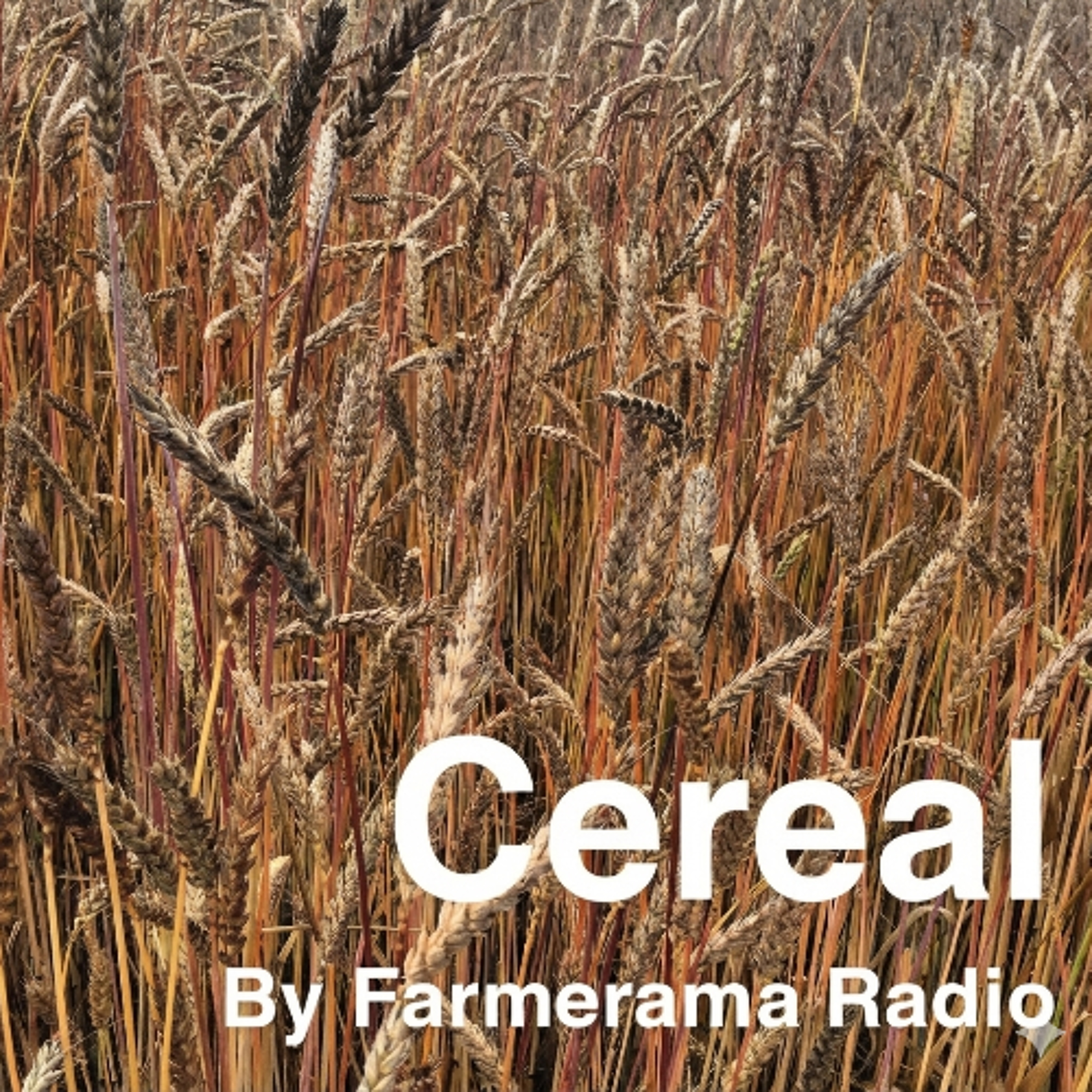
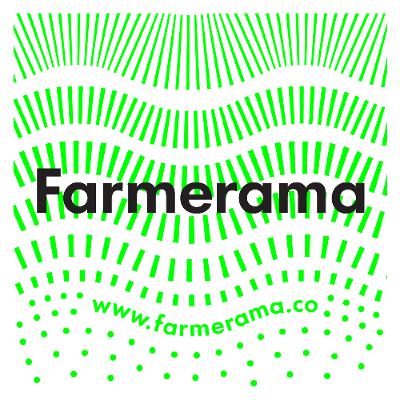
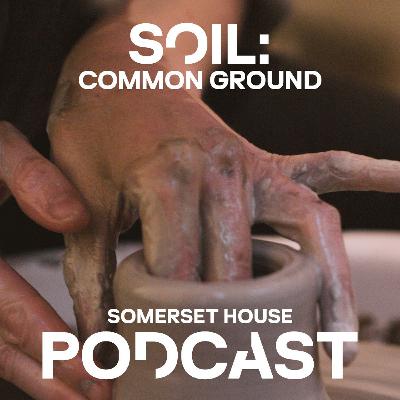
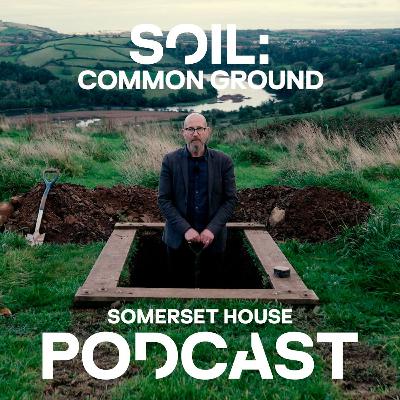
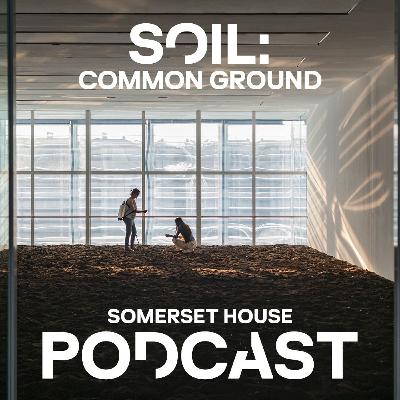





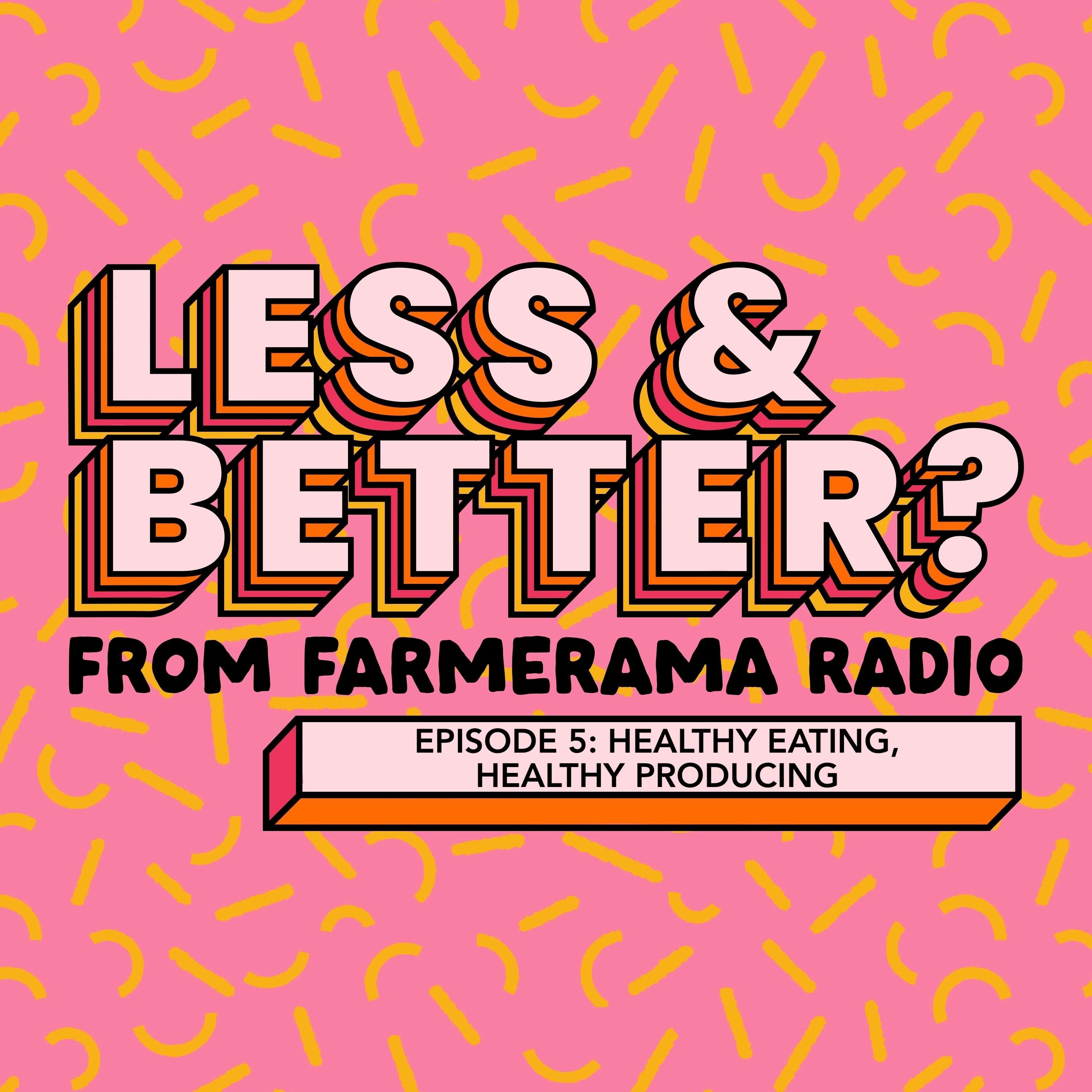
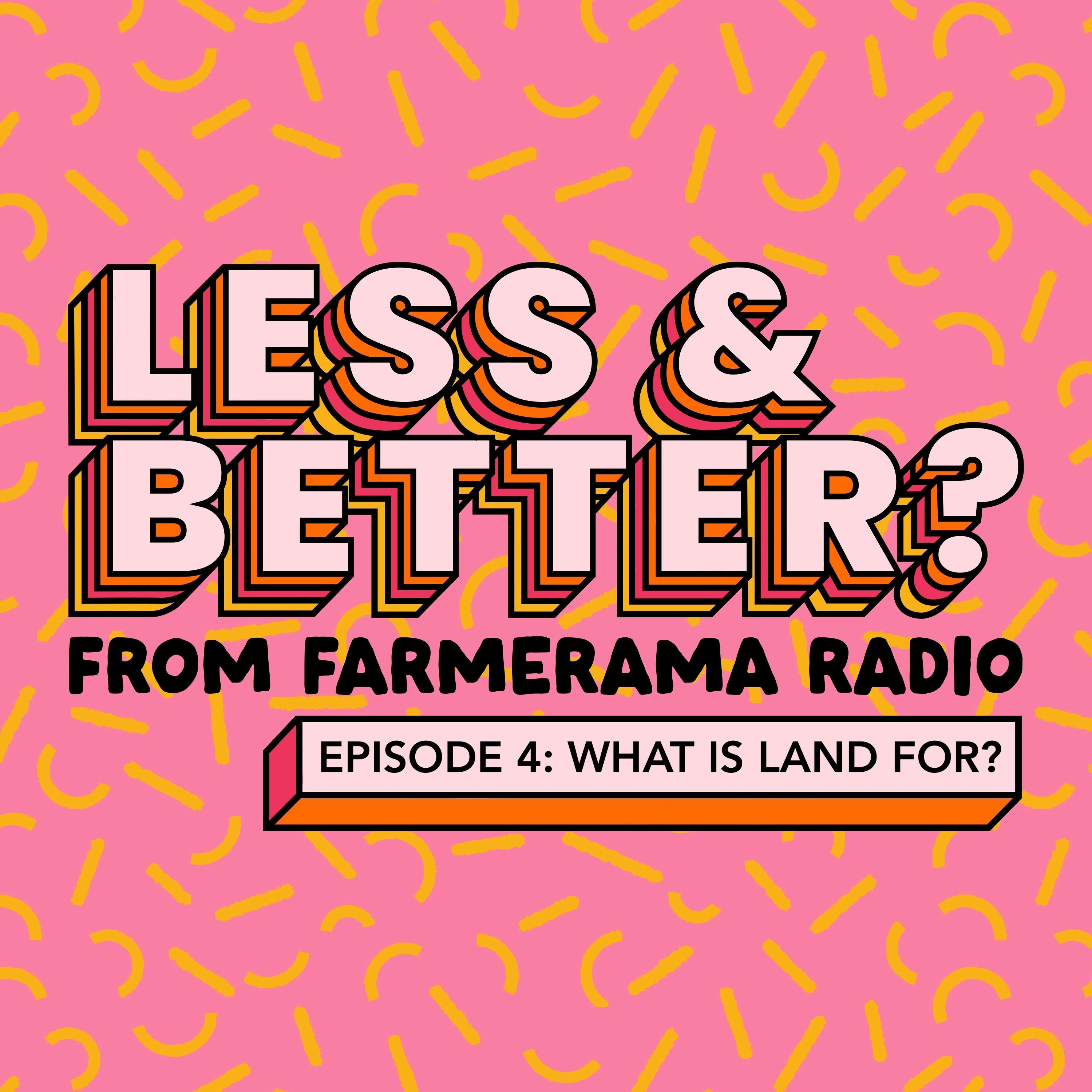







Superb episode. Have already made contact with UK Grain Lab and Hodmedod's. Thank you.